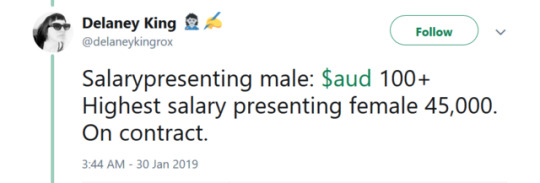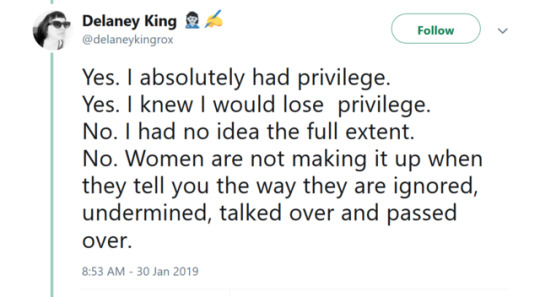Uroboros-IF personal blog 🌟 Misty, she/they ✨ occasionally nsft!
Don't wanna be here? Send us removal request.
Text
happy birthday to our beloved peacock, yeo jinwol! best of luck on your future endeavors, sahyung (≧▽≦)o.。.💕🌟💖 (you'll need it)
artist is @retiredpeach, please check them out!

143 notes
·
View notes
Video
Firefighter demonstrates how to put out a kitchen fire
580K notes
·
View notes
Text
i just have to know what happened to the ui/ux designers at firaxis between civ6 and civ7
58K notes
·
View notes
Text
Ides of March 2025 is going to be a fucking blast because it will have been 2069 years since Caesar's death day
41K notes
·
View notes
Text
when i say “girl” randomly as an interjection i’m speaking to the omnipresent all knowing being of Girl. asking her for mercy. taking girl’s name in vain
72K notes
·
View notes
Text
Short Story Poll
The past week has been filled with more coding than writing. I figured that, in order to get into a creative mindset again and gain some inspiration, I'd write a short story about one of the characters featured in the intro post. If you have any opinion on who you'd like featured in the short, please consider voting in this poll :)
It would be a short-short story, maybe 500 words or so and wouldn't take much time to do. It'll be written from the POV of whoever gets the most votes.
Thank you in advance!
24 notes
·
View notes
Text
“When I was 26, I went to Indonesia and the Philippines to do research for my first book, No Logo. I had a simple goal: to meet the workers making the clothes and electronics that my friends and I purchased. And I did. I spent evenings on concrete floors in squalid dorm rooms where teenage girls—sweet and giggly—spent their scarce nonworking hours. Eight or even 10 to a room. They told me stories about not being able to leave their machines to pee. About bosses who hit. About not having enough money to buy dried fish to go with their rice.
They knew they were being badly exploited—that the garments they were making were being sold for more than they would make in a month. One 17-year-old said to me: “We make computers, but we don’t know how to use them.”
So one thing I found slightly jarring was that some of these same workers wore clothing festooned with knockoff trademarks of the very multinationals that were responsible for these conditions: Disney characters or Nike check marks. At one point, I asked a local labor organizer about this. Wasn’t it strange—a contradiction?
It took a very long time for him to understand the question. When he finally did, he looked at me like I was nuts. You see, for him and his colleagues, individual consumption wasn’t considered to be in the realm of politics at all. Power rested not in what you did as one person, but what you did as many people, as one part of a large, organized, and focused movement. For him, this meant organizing workers to go on strike for better conditions, and eventually it meant winning the right to unionize. What you ate for lunch or happened to be wearing was of absolutely no concern whatsoever.
This was striking to me, because it was the mirror opposite of my culture back home in Canada. Where I came from, you expressed your political beliefs—firstly and very often lastly—through personal lifestyle choices. By loudly proclaiming your vegetarianism. By shopping fair trade and local and boycotting big, evil brands.
These very different understandings of social change came up again and again a couple of years later, once my book came out. I would give talks about the need for international protections for the right to unionize. About the need to change our global trading system so it didn’t encourage a race to the bottom. And yet at the end of those talks, the first question from the audience was: “What kind of sneakers are OK to buy?” “What brands are ethical?” “Where do you buy your clothes?” “What can I do, as an individual, to change the world?”
Fifteen years after I published No Logo, I still find myself facing very similar questions. These days, I give talks about how the same economic model that superpowered multinationals to seek out cheap labor in Indonesia and China also supercharged global greenhouse-gas emissions. And, invariably, the hand goes up: “Tell me what I can do as an individual.” Or maybe “as a business owner.”
The hard truth is that the answer to the question “What can I, as an individual, do to stop climate change?” is: nothing. You can’t do anything. In fact, the very idea that we—as atomized individuals, even lots of atomized individuals—could play a significant part in stabilizing the planet’s climate system, or changing the global economy, is objectively nuts. We can only meet this tremendous challenge together. As part of a massive and organized global movement.
The irony is that people with relatively little power tend to understand this far better than those with a great deal more power. The workers I met in Indonesia and the Philippines knew all too well that governments and corporations did not value their voice or even their lives as individuals. And because of this, they were driven to act not only together, but to act on a rather large political canvas. To try to change the policies in factories that employ thousands of workers, or in export zones that employ tens of thousands. Or the labor laws in an entire country of millions. Their sense of individual powerlessness pushed them to be politically ambitious, to demand structural changes.
In contrast, here in wealthy countries, we are told how powerful we are as individuals all the time. As consumers. Even individual activists. And the result is that, despite our power and privilege, we often end up acting on canvases that are unnecessarily small—the canvas of our own lifestyle, or maybe our neighborhood or town. Meanwhile, we abandon the structural changes—the policy and legal work— to others.”
- Naomi Klein
188K notes
·
View notes
Text
the human stress response seems so maladaptive!
286K notes
·
View notes
Text
10K notes
·
View notes
Text
babygirl you won't believe the amount of popular things i don't know
110K notes
·
View notes
Text
i think they should allow everyone in the world to vote in american elections
90K notes
·
View notes
Photo







https://twitter.com/delaneykingrox/status/1090402436995473408
179K notes
·
View notes




